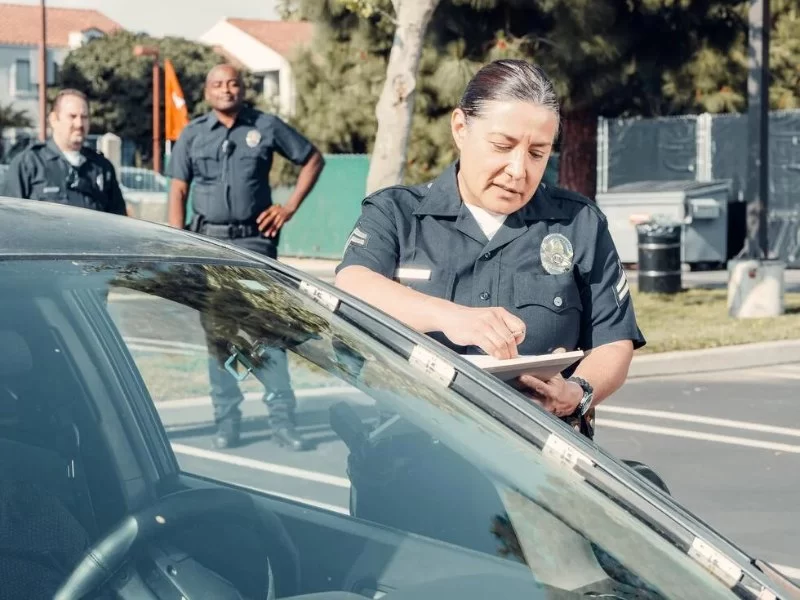
- How Do Lawyers Fight Speeding Tickets - Inside the Legal Strategy
- Understanding Speeding Laws - The Legal Foundation
- Common Defense Strategies - How Attorneys Challenge Evidence
- Real-World Cases - When Legal Expertise Wins
- How to Choose the Right Lawyer - Finding Experience and Credibility
- Why ESPLawyers Makes a Difference - Trusted Traffic Defense Professionals
1. How Do Lawyers Fight Speeding Tickets - Inside the Legal Strategy
When most people receive a speeding ticket, they assume paying it is the only option. However, skilled traffic lawyers know that citations are rarely airtight. Knowing how lawyers fight speeding tickets reveals a blend of legal knowledge, procedural precision, and negotiation skill that can significantly alter the outcome. Whether the goal is to reduce fines, prevent license points, or have the case dismissed entirely, attorneys use a variety of methods tailored to each client’s situation.
Experienced lawyers don’t just argue against the ticket—they dismantle its credibility by examining every technical and procedural detail. From the radar gun calibration to how the officer issued the citation, every step in the process can be challenged if done incorrectly.
2. Understanding Speeding Laws - The Legal Foundation
Speeding laws vary by state, but all rely on the same basic principle: the prosecution must prove that the driver exceeded a posted limit or drove too fast for conditions. However, proving that in court requires evidence that is both accurate and legally admissible. That’s where defense attorneys find opportunity.
2.1 The Burden of Proof
The government must demonstrate guilt beyond a reasonable doubt. If evidence is vague, inconsistent, or improperly documented, the case weakens. Lawyers often exploit this by examining calibration records, weather conditions, and even how the officer estimated speed.
2.2 The Officer’s Role
Officers are trained to use radar, lidar, and pacing methods to measure speed. However, human error is common. If an officer fails to follow correct procedure, such as not testing the radar gun at the start and end of their shift, the defense can argue that the readings are unreliable.
2.3 Local Ordinances and Technicalities
Some cities set “speed traps” that may not align with state laws or proper signage requirements. Attorneys familiar with local regulations can use these inconsistencies to challenge the validity of a citation.
3. Common Defense Strategies - How Attorneys Challenge Evidence
Experienced lawyers employ a range of targeted strategies when fighting speeding tickets. Here’s how they typically approach these cases:
3.1 Questioning the Accuracy of Speed Measurement
Radar and lidar devices require precise calibration and operation. A defense lawyer may request maintenance logs or calibration certificates to verify that the device was accurate at the time of the citation. If not, the evidence can be deemed inadmissible.
3.2 Challenging the Officer’s Observations
Visual estimates of speed are subjective. Lawyers often cross-examine officers to reveal inconsistencies or environmental factors—such as traffic flow, curves, or glare—that could have influenced perception. By introducing doubt, they undermine the prosecution’s confidence in the officer’s testimony.
3.3 Identifying Procedural Errors
Small mistakes can have big consequences. Errors in how the ticket was written, how evidence was submitted, or even how the officer filed reports can lead to dismissals. Legal professionals comb through every document line by line to find these weak points.
3.4 Negotiating with Prosecutors
Sometimes the best defense is diplomacy. Lawyers can negotiate plea deals that reduce charges from speeding to non-moving violations—avoiding license points and insurance hikes. This approach saves time and avoids the risk of trial.
4. Real-World Cases - When Legal Expertise Wins
Consider the case of David from Arizona, who was cited for going 20 mph over the limit on a rural highway. His lawyer discovered that the radar device hadn’t been recalibrated in over six months—contrary to manufacturer requirements. The evidence was dismissed, and so was the ticket.
In another example, Sandra from Texas received a ticket for speeding in a construction zone. Her attorney demonstrated that signage indicating reduced speed was partially obscured by foliage. The judge ruled in her favor, citing lack of proper notice. Her record remained spotless.
These stories highlight that fighting a ticket isn’t about escaping responsibility—it’s about ensuring fairness. Every driver has the right to question how evidence is gathered and presented.
5. How to Choose the Right Lawyer - Finding Experience and Credibility
When searching for a traffic attorney, experience matters most. A lawyer who regularly handles speeding cases understands both the law and the local court system’s nuances. Check for proven results, specialization in traffic defense, and strong client reviews.
5.1 Local Knowledge
Traffic laws can differ even between neighboring counties. Lawyers familiar with specific judges and prosecutors often know how to tailor arguments that resonate locally.
5.2 Clear Communication
Reputable lawyers explain your options clearly, outline costs upfront, and provide realistic expectations. Transparency builds trust—and ensures you’re never left guessing about your case’s status.
5.3 Fee Structures
Most speeding ticket lawyers charge flat fees. This makes budgeting easier and ensures the attorney’s incentive aligns with your goal—getting the best possible outcome efficiently.
6. Why ESPLawyers Makes a Difference - Trusted Traffic Defense Professionals
At ESPLawyers, clients receive more than basic legal representation—they get strategic defense tailored to individual circumstances. The firm’s attorneys combine deep knowledge of traffic law with hands-on courtroom experience, enabling them to spot procedural errors that others might miss.
Whether it’s a first-time citation or a repeat offense, ESPLawyers approaches every case with precision and persistence. Their team works closely with clients to minimize penalties, preserve driving privileges, and prevent insurance surcharges. They’ve successfully helped thousands of drivers avoid costly long-term consequences.
If you’ve received a speeding ticket and feel unsure what to do next, contacting ESPLawyers can make all the difference. They understand not just the letter of the law—but how to use it to your advantage.








